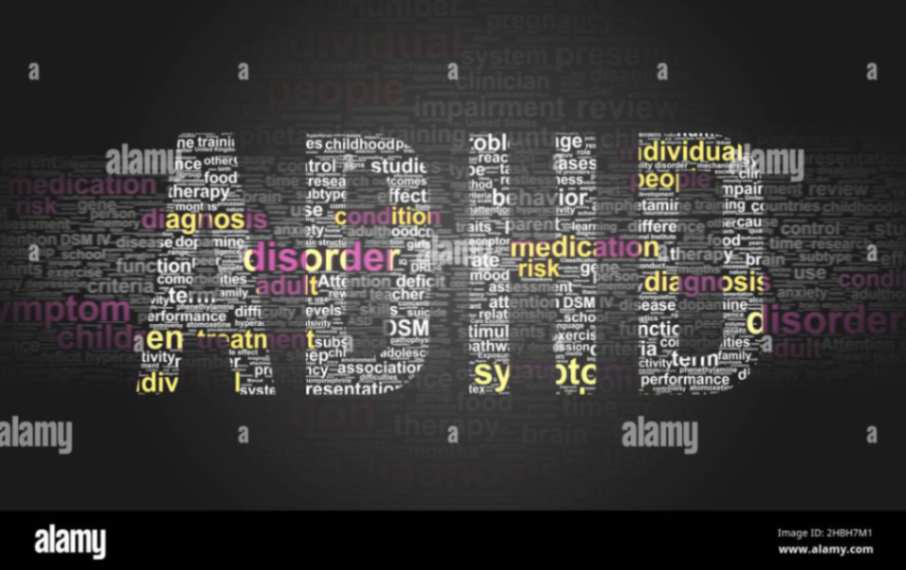


The three most obvious signs of attention deficit hyperactivity disorder (ADHD)—inattention, impulsivity, and hyperactivity
The three most obvious signs of attention deficit hyperactivity disorder (ADHD)—inattention, impulsivity, and hyperactivity—are frequently used to narrow down the diagnosis. These characteristics serve as the basis for diagnosing ADHD, but they don’t fully capture the experience of living with this neurodevelopmental disorder. Experts are beginning to acknowledge ADHD as a complex condition that impacts social relationships, executive functioning, and emotional control as research progresses.
According to the traditional perspective, children with ADHD are agitated and incapable of sitting quietly or paying close attention. This portrayal, however, ignores many subtle but no less significant facets of the illness that go beyond childhood. For example, adults with ADHD may struggle with emotional dysregulation, forgetfulness, and disorganization but not hyperactivity.
Having trouble controlling one’s emotions is one of the more common but less well-known signs of ADHD. Extreme mood swings, irritability, and sensitivity to criticism or rejection are all possible. Interpersonal difficulties and the emergence of comorbid disorders like anxiety or depression might result from these emotional reactions.
The cognitive processes in charge of organizing, planning, and finishing tasks are referred to as executive functions. Executive dysfunction, which shows itself as poor time management, difficulties setting priorities, and trouble starting or finishing projects, is a common problem for people with ADHD. Academic, career, and personal success may be impacted by this.
The way that ADHD manifests itself varies greatly from person to person; it is not a single disorder. There are three main subtypes of ADHD according to the Diagnostic and Statistical
Although ADHD has many disadvantages, it also has advantages. Many people with ADHD have exceptional perseverance, inventiveness, and problem-solving skills. Entrepreneurs, artists, and innovators sometimes attribute their distinctive viewpoints and unlimited energy to their ADHD.
Divergent thinking is ingrained in ADHD minds, which encourages creative problem-solving and unconventional ideas. In industries that need originality and non-traditional methods, this inventiveness can be a strength. In order to assist people transform their distinct thought processes into creative and useful results, ADHD treatment frequently attempts to capture and enhance this creativity.
Even though people with ADHD have trouble controlling their attention, they can occasionally become extremely focused while working on interesting projects. Mastery of complex abilities and extraordinary productivity can result from this focused focus.
Adaptability and resilience are fostered by navigating life with ADHD. Many people acquire coping strategies and flourish in fast-paced settings that benefit from multitasking and rapid thinking.
Misconceptions concerning ADHD continue to exist despite increased knowledge. Some believe it to be a made-up illness, or they blame symptoms on indolence or bad parenting. These misconceptions hinder diagnosis and treatment and diminish the experiences of people with ADHD.
Dispelling these misunderstandings requires educating the public about the complex nature of ADHD. Sharing personal experiences of ADHD helps promote understanding and empathy
A thorough strategy that takes into account the cognitive, emotional, and behavioral components of the disorder is necessary for effective ADHD management. Medication, counseling, and lifestyle changes are frequently used in treatment regimens.
ADHD symptoms are frequently treated with stimulant drugs like amphetamines and methylphenidate. These drugs improve focus and impulsive control by increasing neurotransmitter activity. For people who don’t react well to stimulants, non-stimulant solutions like atomoxetine provide alternatives.
Cognitive behavioral therapy, or CBT, assists people in managing emotional dysregulation, enhancing executive function, and creating coping mechanisms. Children and adolescents can benefit most from behavioral therapies, which educate them how to deal with social and scholastic difficulties.
It’s critical to speak up for oneself or a loved one with ADHD in order to get the help and adjustments they need. Changes that promote success and well-being can be made by healthcare practitioners, businesses, and schools.
Students with ADHD receive specialized help through Individualized Education Programs (IEPs) , which guarantee they have the tools necessary to succeed academically.
ADHD is a complicated, multidimensional condition that affects a person’s entire life. We may create a more encouraging atmosphere for those with ADHD by acknowledging the hidden qualities and variety of its manifestations. People with ADHD can use their special talents to enjoy successful, meaningful lives if they receive the proper support.
